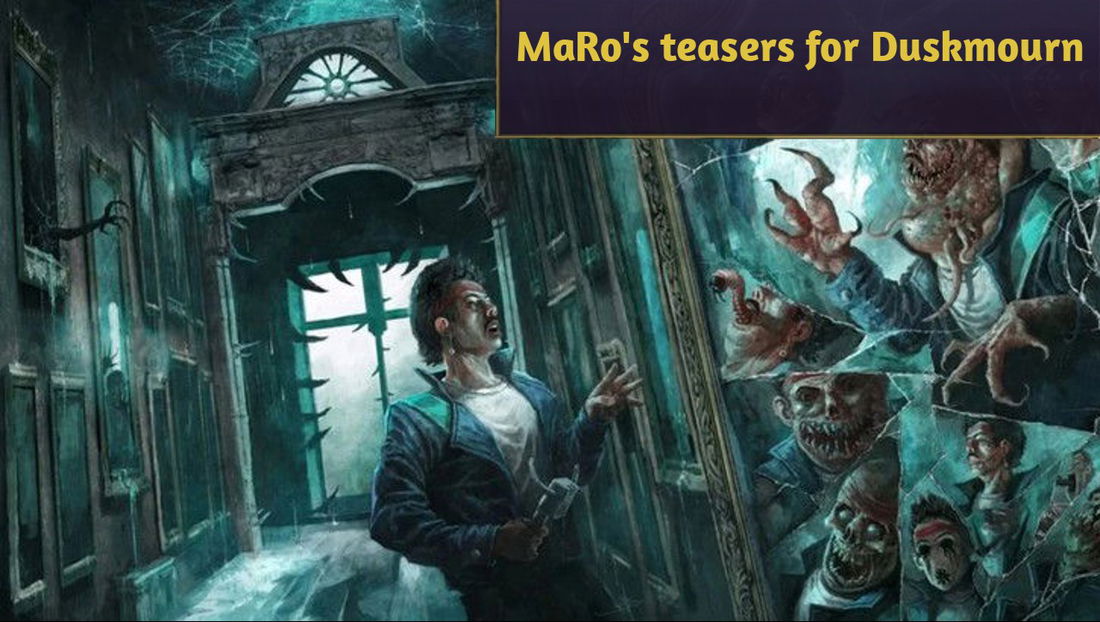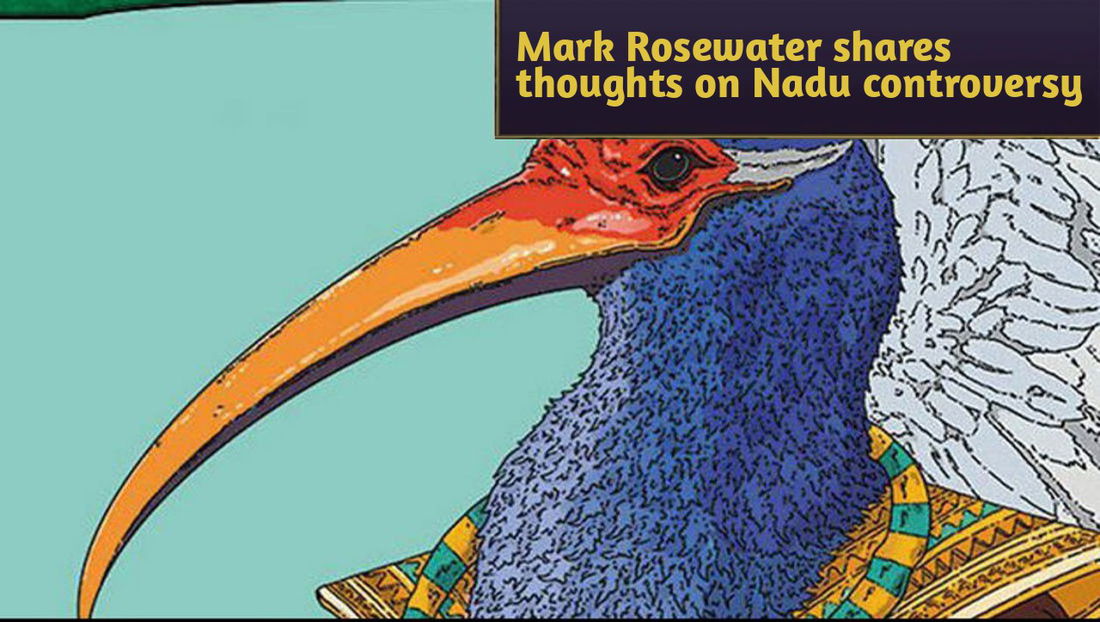There are some strategies from last season's Standard that have managed to stay in the post-rotation Metagame and even consolidate themselves as some of the best decks in the format. Archetypes like Golgari Midrange and Domain Ramp are the most notable in this category and dictate current deckbuilding trends today.
If we look at the lower tiers, we can find other strategies in this category, such as Gruul Surprise and the deck in today's article, Azorius Mentor, probably the closest thing to a Tempo strategy in the Bloomburrow Standard.
The Decklist
This is the list I've been comfortable playing in the last few weeks. I've seen several others that are basically a copy-and-paste of the list that ran in the Japan Standard Open at the beginning of the season, with some choices that I don't particularly like (Soul Partition being among them), but whose shell provides the foundation to build your own list around.
There are many ways to build 
On the other hand, Azorius Mentor is extremely fun to play and brings a breath of fresh air to a format where most sources of card advantage and means of drawing cards are focused on permanents.
Maindeck

Our win condition.
Monastery Mentor is a card that gets out of control quickly. One unsuccessful removal on it and your opponent already has to deal with a token with Prowess. One cantrip and that's two tokens, any other spell and the number of tokens becomes too large to ignore. Being fetched with Helping Hand, it's not uncommon to have turns where we put those three tokens into play the moment it enters the battlefield.
Haughty Djinn is the "go big". If protected and without blockers, it is common for it to win the game in three turns, and its cost reduction ability helps to sequence more explosive plays.
Picklock Prankster can find Helping Hand or any answer we need for a given situation while putting our creatures in the graveyard. There are scenarios where we need to use its creature side without casting the Adventure first to hold the opponent's Aggro - and it's also great at carrying Sword of Once and Future, an essential card in our Sideboard in the current Metagame.

Our reanimation package.
Helping Hand is the card that enabled Azorius Mentor. After all, casting Monastery Mentor or Haughty Djinn for one mana makes it easier to extract value from them.
The spell is complemented by Recommission, which has a similar effect for two mana. I consider it a flexible slot that can be replaced by meta calls, but consistency in reanimation is more useful than extra removal or counterspell.

Our cantrips.
Sleight of Hand is the best option we have for one mana in the format today - and Consider is sorely missed - so we use it to filter our top deck and find the pieces we need, while Moment of Truth allows us to dig a little deeper at Instant-Speed.
Chart a Course is a virtual draw 2 even when we don't attack with creatures when we put a creature in the graveyard, since we can reanimate them with Helping Hand, working as an additional enabler in the list. It is a frequent side-out due to its casting speed and/or the expectation of some graveyard hate coming from the opponent's sideboard.

Our board interaction.
Into the Flood Maw is the best Unsummon we have in Standard today, although we can't use it to protect our creatures from removal. Its Gift ability has some utility in specific matchups, and the token we offer doesn't make that much of a difference in the course of the game.
Get Lost is my choice for unconditional removal in the maindeck instead of Soul Partition. Although it doesn't deal with artifacts and gives the opponent the opportunity to filter the top with Maps, I believe that permanently dealing with a threat like Slickshot Show-Off is better than delaying a turn because we've already wasted the first few turns chasing key cards.

Our stack interaction.
Phantom Interference is the best two-mana counterspell we have in Standard today, and we can use it to have another body on the board if the game stretches to the point where we have enough mana, while Three Steps Ahead is a hard counter that also filters our hand or copies some creature for a surprise lethal attack.
Negate, Shore Up and Surge of Salvation seek to respond to more specific situations in the Metagame and are part of the flex slots. In a world of optimized numbers, it is likely that their numbers would be divided into another copy of Three Steps Ahead and another copy of one of these cards (Negate for a more broad environment, Shore Up for Metagames with more removals and Surge of Salvation if you want to respect the prevalence of 

Since we are a Turbo Xerox deck, we can reduce our land count to 20 and still get three to five mana without major problems. Meticulous Archive contributes to this proposal by giving us another way to filter the top and put creatures or cards we don't need in the graveyard, even enabling a Monastery Mentor on the second turn.
Sideboard

Destroy Evil is an additional copy of interaction against large creatures and enchantments. It may be an extra copy of Get Lost if you prefer, but it was the card I used in the Sideboard in most games, and I kept it for the writing of this article.
Loran of the Third Path was originally the second copy of Destroy Evil, but Artifact decks have been appearing quite frequently in my MTGArena games and not all of them are answered with Temporary Lockdown, so a copy of it to deal with Simulacrum Synthesizer and similar cards is necessary.

Temporary Lockdown is our main answer against Aggro and offers a two-for-one or even more with a single card, being essential to hold the game for long enough. Sunfall serves the same purpose, but we can use it against Midrange to deal with the opponent's positive trades, since the game tends to stretch.

Sword of Once and Future is a permanent answer to the abundance of removals like Go for the Throat in the Metagame. A creature equipped with it will not only have an easy time dealing with most Midrange blockers, but will also reuse Helping Hand and other cards to keep up with attrition exchanges.
There are times when I wish I had a second copy of it in the Sideboard - especially since Tranquil Frillback is a common card to see in the Side-in due to graveyard hate - and other times I see it as too slow for Azorius Mentor.
Negate and Surge of Salvation are extra copies of protection against specific matchups and come in games where we need more stack interaction and/or to deal with red decks' clock, or removals. A second copy of Negate may be advisable for archetypes like Azorius Control and Boros Tokens.

Doorkeeper Thrull is our main answer against Atraxa, Grand Unifier or any other troublesome ETB in the current format. It also works to stall Simulacrum Synthesizer and Beza, the Bounding Spring, as well as preventing Archangel of Wrath from dealing with our threats.
Anointed Peacekeeper grants information about the opponent's hand and delays a key play by one or two turns. Since it's a creature, it can be returned to play with Helping Hand and even serve as a blocker if necessary.
Sideboard Guide
Golgari Midrange
IN

OUT

Domain Ramp
IN

OUT

Gruul Prowess / Mono Red Prowess
IN

OUT

Azorius Control
IN

OUT

Rakdos Lizards
IN

OUT

Boros Convoke
IN

OUT

Wrapping Up
That's all for today.
If you have any questions, feel free to leave a comment and thanks for reading!














— Comentarios 0
, Reacciones 1
Se el primero en comentar